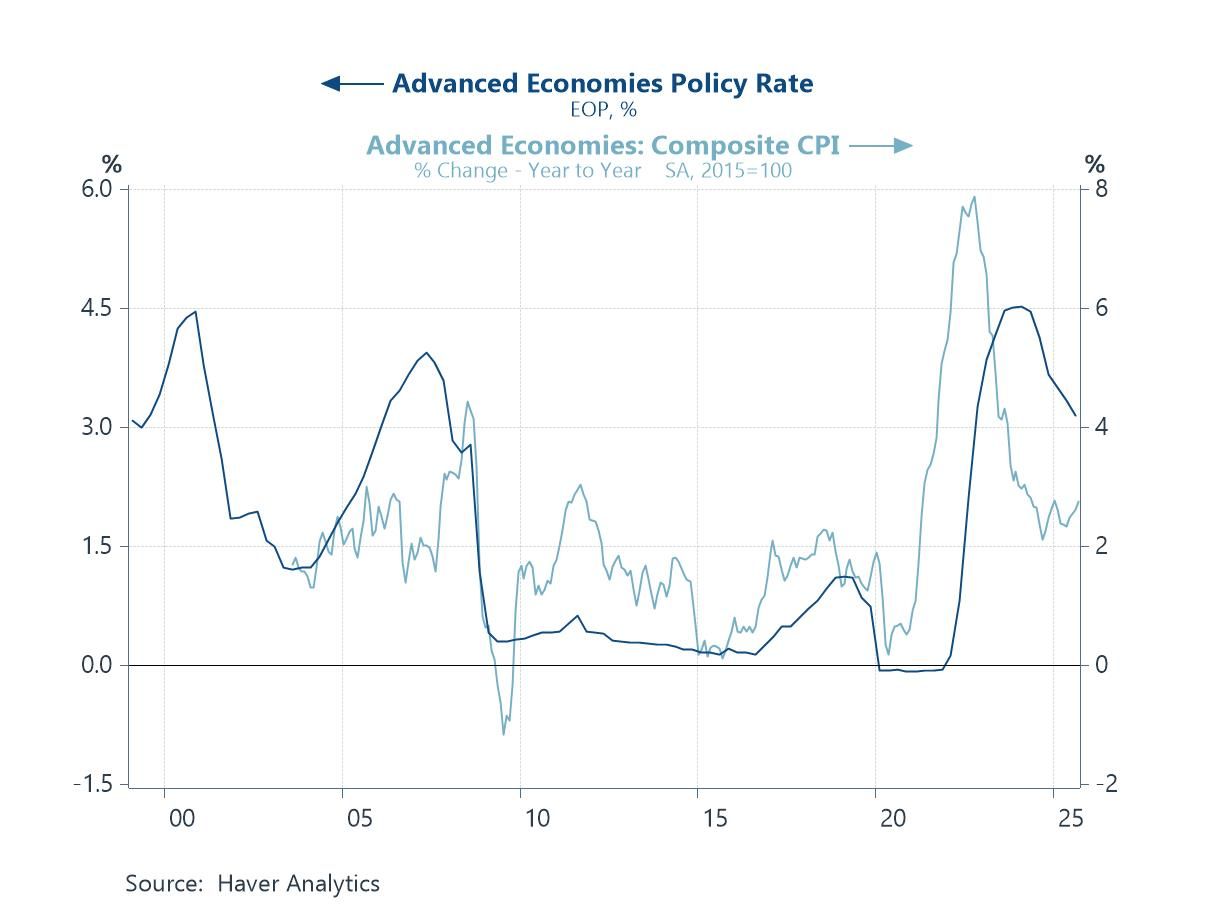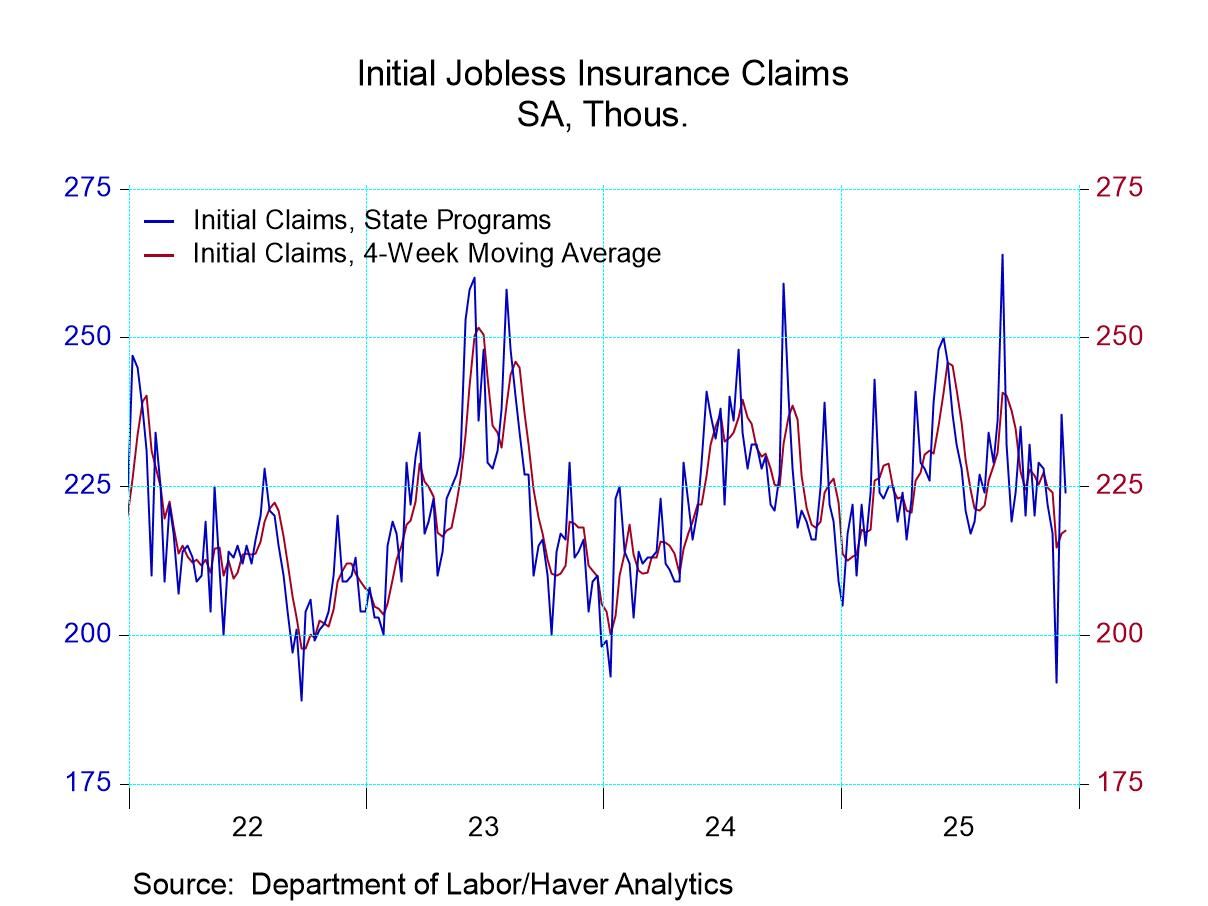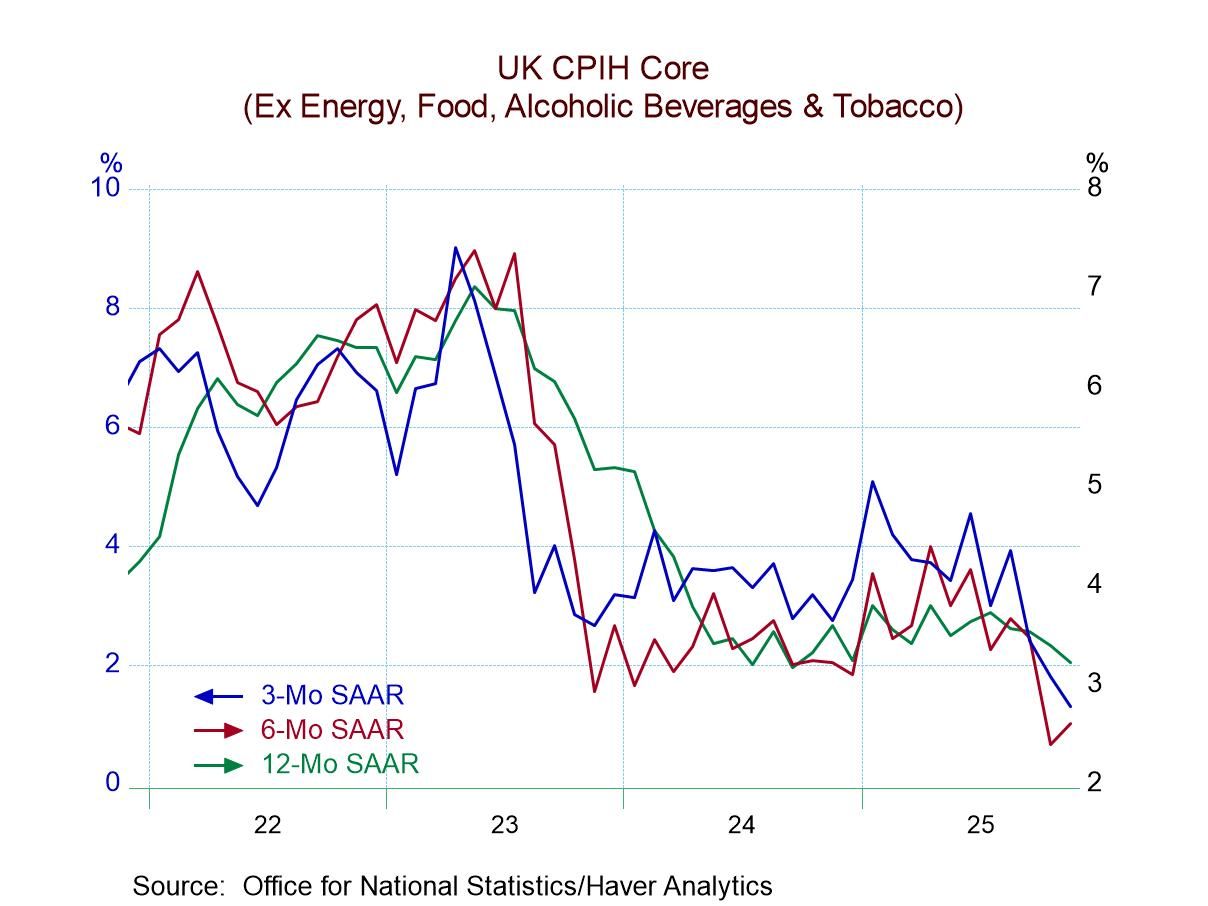U.S. Empire State Index Weakens in January
by:Tom Moeller
|in:Economy in Brief
Summary
- Negative reading is worst since May 2020.
- Component declines include new orders, shipments & employment.
- Prices paid & received indexes weaken.


The Empire State Manufacturing Index of General Business Conditions fell sharply to -0.7 in January from 31.9 in December as New York became the epicenter of the Omicron outbreak. A decline to 25.5 had been expected in the Action Economics Forecast Survey. A greatly lessened 22.1% of respondents reported improved business conditions in January versus 45.2% in December, while 22.8% reported that conditions had worsened, increased from 13.2% in December. The latest survey was conducted between January 3 and January 10.
Haver Analytics constructs an ISM-adjusted Empire State diffusion index using methodology similar to the ISM series. The latest reading fell to 54.4 in January from 60.8 in December. It was well below the July high of 63.4. A reading above 50 signifies growth. In contrast to the ISM index, the headline Empire Index reflects the answer to a single question, not calculated from its components.
Declines in the Empire State component series were widespread in January. The new orders measure fell from 27.1 to -5.0, the first negative reading since August 2020. Shipments fell to 1.0 from 27.1 as 23.1% reported a decline in shipments versus 17.3% in December and 24.1% of respondents reported higher shipments versus 44.4% in the prior month. The delivery time index fell to 21.6 after declining sharply to 23.1 in December. A lessened 29.3% of respondents reported increased delivery times versus 34.7% in December, while 7.8% reported shorter deliver times versus 11.6% in December. The unfilled orders series fell to 12.1 from 19.0 in December. Working higher was the inventory index to 10.3, its highest level in three months.
Employment indicators weakened sharply this month. The number of employees index fell to 16.1 from 21.4 in December. Twenty percent of respondents reported increases in employment versus 26.7% in December, while 3.9% reported a decline in employment after 5.3% did so in December. The average workweek series eased to 10.3 this month after falling sharply in December to 12.1.
Inflation pressures weakened in January. The prices paid index declined to 76.7, its lowest point since September of last year. The record high was 83.5 in May 2021. A lower 77.6% of respondents paid higher prices, down from 81.8% in December while a lessened 0.9% paid less. The prices received measure fell sharply to 37.1 from 44.6 in December.
The index of expected business conditions in six months eased to 35.1 in January from 36.4 in December, compared to 72.0 in October. Expectations for shipments, delivery times and employment fell while expectations for prices received rose. Expectations for both capital spending and technology spending improved slightly.
The Empire State data, reported by the Federal Reserve Bank of New York, reflect business conditions in the manufacturing sector in New York, northern New Jersey and southern Connecticut. The headline measure is constructed from the answer to a single question on business conditions. The Empire State figures are diffusion indexes, which are calculated by subtracting the percent of respondents reporting declines from the percent reporting gains. The data are available in Haver's SURVEYS database. The ISM-adjusted headline index dates back to 2001. The Action Economics Forecasts can be found in Haver's AS1REPNA database.


Tom Moeller
AuthorMore in Author Profile »Prior to joining Haver Analytics in 2000, Mr. Moeller worked as the Economist at Chancellor Capital Management from 1985 to 1999. There, he developed comprehensive economic forecasts and interpreted economic data for equity and fixed income portfolio managers. Also at Chancellor, Mr. Moeller worked as an equity analyst and was responsible for researching and rating companies in the economically sensitive automobile and housing industries for investment in Chancellor’s equity portfolio. Prior to joining Chancellor, Mr. Moeller was an Economist at Citibank from 1979 to 1984. He also analyzed pricing behavior in the metals industry for the Council on Wage and Price Stability in Washington, D.C. In 1999, Mr. Moeller received the award for most accurate forecast from the Forecasters' Club of New York. From 1990 to 1992 he was President of the New York Association for Business Economists. Mr. Moeller earned an M.B.A. in Finance from Fordham University, where he graduated in 1987. He holds a Bachelor of Arts in Economics from George Washington University.




 Global
Global

